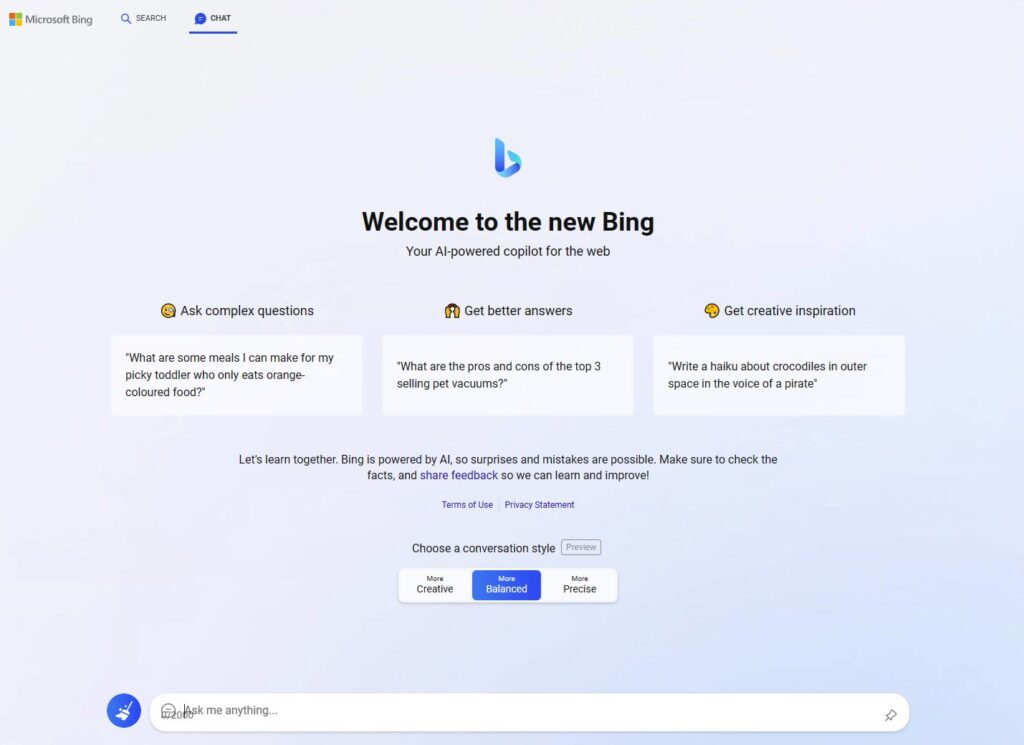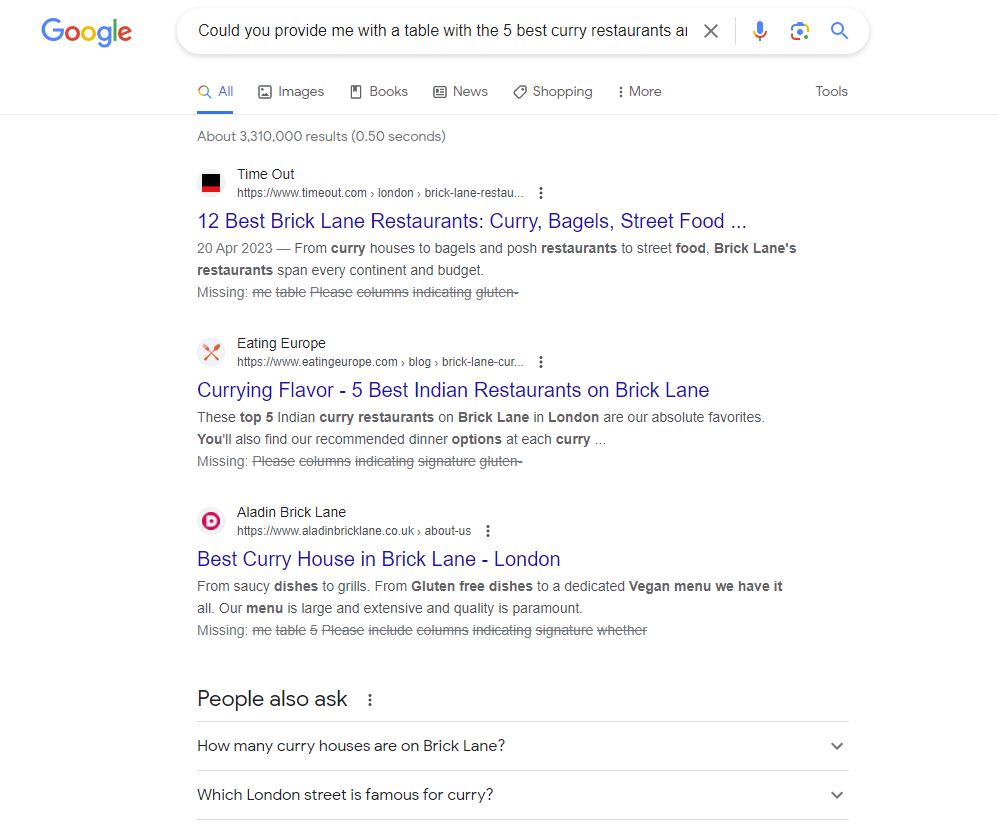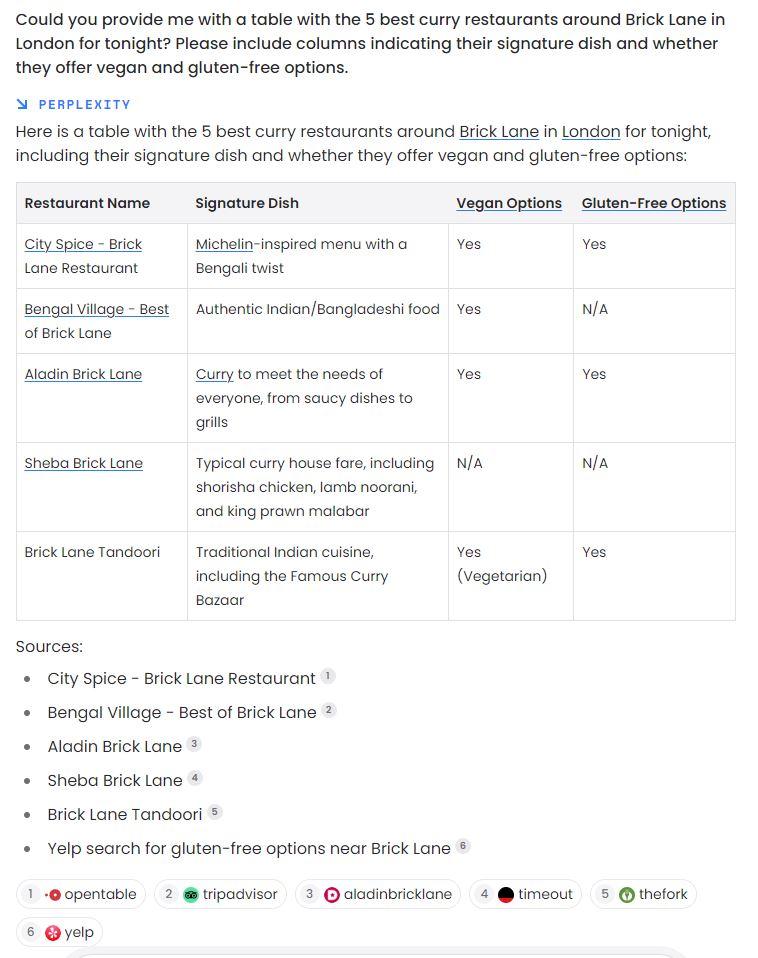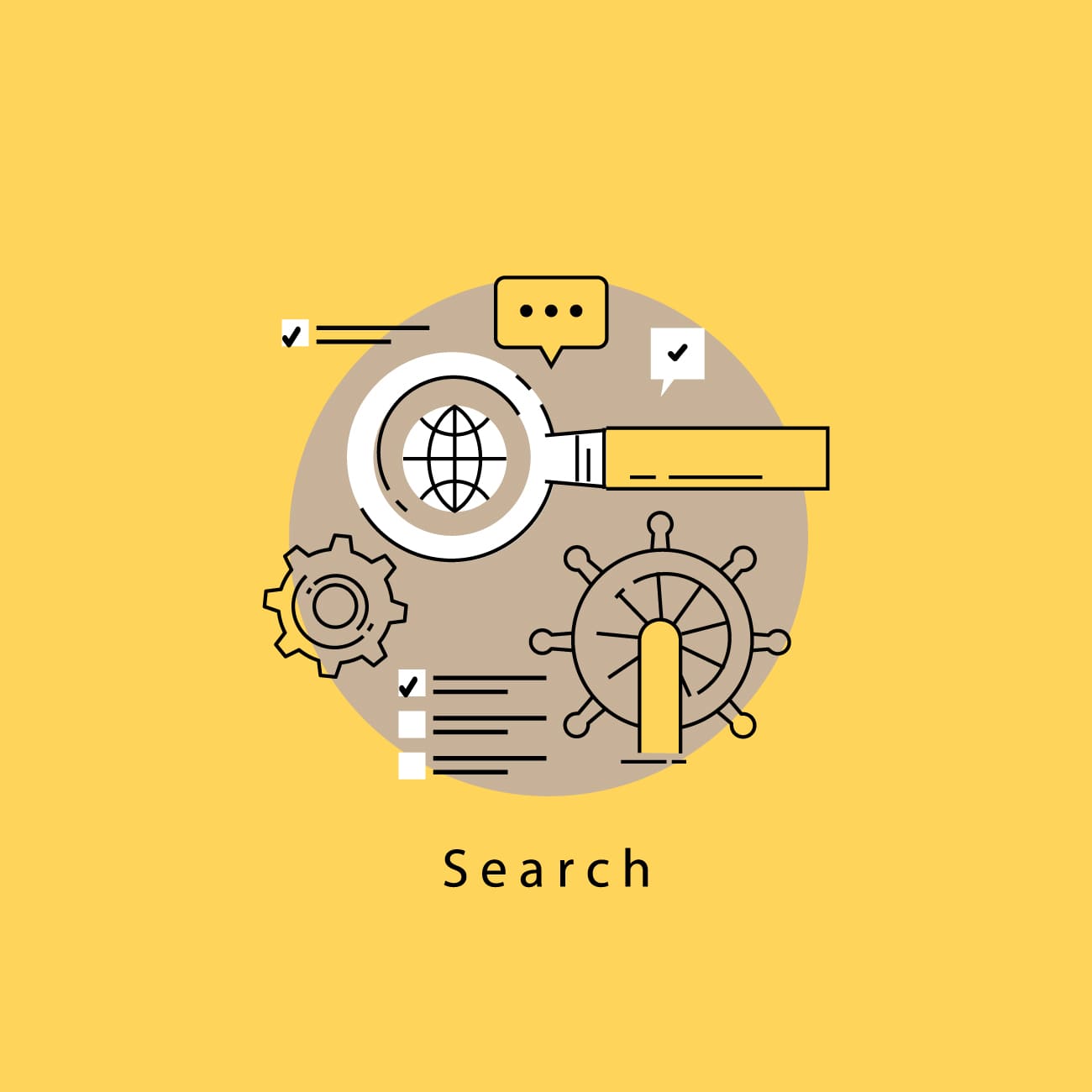How AI is Shaping the Future of SEO: The Impact of Artificial Intelligence on Search Engine Optimisation
Artificial intelligence (AI) refers to the ability of machines to learn from data, and then make decisions and predictions based on that information.
In the world of Digital Marketing and SEO, artificial intelligence is changing the way search engines operate, as well as how marketers and businesses approach search engine optimisation.

Many of the technical aspects of SEO are being automated with AI, including improved search results and relevance.
In this article:
What is AI SEO?
AI SEO combines artificial intelligence and search engine optimisation. It uses machine learning algorithms to analyse data and predict user behaviour.
Additionally, natural language processing is used to comprehend the intent behind search queries.
In addition, AI SEO automates tasks such as keyword research, content optimisation, and link building.
This enables SEO professionals to save time, allowing them to concentrate on more strategic tasks such as content strategy and link acquisition.
AI SEO Tools and Their Benefits
In today’s market, there is a plethora of AI-Powered Tools that use machine learning algorithms and other AI technologies to assist SEO professionals in optimising their websites for better search performance.
By using AI-Powered Tools, professional SEO teams can benefit from:
- More accurate keyword research: AI-based tools can sift through vast amounts of data to identify the most effective keywords to target for your website.
- Better content optimisation: AI-based tools can analyse your content and provide recommendations on how to optimise it for better search performance.
- Improved link building: AI-based tools can assess your backlink profile and suggest methods for building high-quality links to your site.
- More personalised user experiences: AI-powered tools can assist in creating more personalised and relevant content that appeals to your target audience.
All of these advantages not only improve search performance but also free up time for SEO professionals to focus on more strategic tasks such as content strategy and link acquisition.
AI Generated Content: What Google Says
Google has consistently provided guidance on automatically generated content, emphasising that using automation, including AI, to generate content primarily to manipulate search rankings violates their spam policies. Google has been dealing with automation used to manipulate search results for years and developed a system called SpamBrain to combat spam.
However, Google recognises that not all automation, including AI generation, is spam. Automation has been used to create useful content such as sports scores, weather forecasts, and transcripts. Furthermore, Google recognises the potential of AI to enable new levels of creativity and expression and to help people generate high-quality content for the web.
Google remains committed to empowering people with new technologies while maintaining high standards for information quality and content helpfulness in Search. They will continue to take a responsible approach in this regard.
Our focus on the quality of content, rather than how content is produced, is a useful guide that has helped us deliver reliable, high quality results to users for years. (Source: Google) Share on XHow AI Enhances Google’s Search Algorithm
Google’s search algorithm is a highly complex and advanced software that utilises a variety of signals to evaluate the quality and relevance of web pages, ultimately providing the most suitable results to users.
The significance of AI in this process continues to grow, as Google employs machine learning algorithms to enhance its understanding of user queries and deliver improved search results. Google’s RankBrain algorithm, for instance, utilises AI to interpret complicated queries and offer more precise outcomes. This demonstrates the importance of AI in the evolution of search engine optimisation and emphasises the need for professional services businesses to utilise AI SEO tools to optimise their web pages and improve their search engine rankings.
| AI technology | Description | How it helps Google |
|---|---|---|
| Natural Language Processing (NLP) | NLP is a branch of AI that focuses on understanding and interpreting human language. Google uses NLP to better understand the intent behind user queries, so it can provide more relevant search results. | By better understanding user intent, Google can deliver search results that are more relevant to what users are looking for. |
| RankBrain | RankBrain is an AI algorithm that helps Google understand the relevance and context of keywords in search queries. It uses machine learning to analyse patterns in search data and learn from them. | RankBrain helps Google to better understand the relevance of search results, even when the query is phrased unusually or unexpectedly. |
| Image and Video Analysis | Google’s AI algorithms can analyse images and videos to better understand their content. This helps Google provide more accurate image and video search results. | By understanding the content of images and videos, Google can deliver more relevant results for image and video search queries. |
| Personalisation | Google uses AI to personalise search results based on a user’s search history, location, and other factors. | By personalising search results, Google can provide more relevant and useful results for individual users. |
| Predictive Analytics | Google’s AI algorithms can use data analysis and machine learning to predict what users are likely to search for next. This helps Google provide suggestions for related search queries or refine search results. | By predicting what users are likely to search for, Google can provide more relevant and useful search results in real-time. |
How Microsoft is Enhancing Bing with AI

Microsoft is taking the AI game to a whole new level by adding AI capabilities to Bing.
Thanks to their long-term partnership with OpenAI, Microsoft Azure will power all OpenAI workloads across research, products, and API services as OpenAI’s exclusive cloud provider. Furthermore, the Bing search engine has been integrating AI technology into its search algorithms to improve its search results and user experience:
- A new version of Bing was launched in February featuring a host of AI tools built on Prometheus, a modified version of OpenAI’s large language model, GPT-4, the technology that powers ChatGPT.
- One of the AI-Powered tools that Bing has integrated into its search algorithm is the Open AI image generator, DALL-E 2, which is used to form the Bing Image Creator.
- Bing has also introduced a visual search tool that allows users to post images and ask questions about them using natural language processing. The AI program then proposes websites with relevant instructions and other types of projects.
- Users can also use Bing Chat, an AI-powered chatbot, to get answers to their questions and search for information.
With these advancements in AI technology, Bing is providing users with a more personalised and efficient search experience.
Natural Language Processing: AI’s Role in Improving Search Query Understanding
Natural language processing (NLP) refers to the ability of machines to understand human language and interpret its meaning. NLP is a key component of AI, and it’s playing an increasingly important role in SEO.
By using NLP algorithms, search engine algorithms can better understand the intent behind user queries, and deliver more relevant results. This is particularly significant in the age of voice search where people are more inclined to use natural language when seeking information.
AI and Voice Search: How Siri, Alexa, and Google Assistant are Changing Search
The world is embracing voice search, and AI-powered virtual assistants such as Siri, Alexa, and Google Assistant are at the forefront of this revolution. These assistants use advanced natural language processing and other AI technologies to understand user queries and provide accurate results.

As more people opt for voice assistants to search for information, it is becoming increasingly important for small businesses to optimise their content for natural language queries.
Related: How to Get Your Business Found on Voice Search
Personalisation & User Intent: AI’s Role in Delivering Tailored Search Results
Personalisation is a significant advantage of AI in SEO. By employing machine learning algorithms, AI-powered search engines can deliver personalised search results based on user intent and behaviour, catering to individual user preferences.
This presents an excellent opportunity for marketers to optimise their content for user intent and create a personalised user experience, improving engagement and customer satisfaction. As AI continues to advance, the ability to deliver tailored and personalised search results will only get better.
Predictive Analytics: How AI Anticipates User Behaviour for Better Recommendations
AI is also being used in SEO to predict user behaviour and provide better recommendations to users.
By analysing data on user behaviour and preferences, search engines can make predictions about what users are likely to do next, and provide recommendations that are tailored to their individual needs.

This technology has significant implications for marketers who must adapt to stay competitive in this evolving landscape. By harnessing predictive analytics, businesses can better understand their customers and tailor their content to improve user experience.
AI in Technical SEO: Automating Crawling, Indexing, and Sitemaps
AI is also being used to automate and streamline many of the technical aspects of SEO.
For example, AI algorithms can be used to crawl websites more efficiently, identify technical issues that may impact SEO performance, and generate sitemaps optimised for search engines.
This saves time and resources for marketers and allows them to focus on other aspects of SEO that require more human input and creativity.
Machine Learning in SEO: How Data Analysis is Shaping SEO Strategies
Machine learning is a subfield of AI that involves the development of algorithms that can learn from data and make predictions or decisions based on that learning. In SEO, machine learning is being used to analyse large volumes of data and identify patterns that can inform SEO strategies.
By analysing search engine ranking data, machine learning algorithms can identify the factors most strongly correlated with high rankings. The result? More effective SEO strategies for professional services businesses.
The Rise of Visual Search: How AI is Transforming Search Behaviour

Visual search is a rapidly growing area of search, driven by AI-powered technology. By allowing users to search using images, rather than text, visual search is gaining popularity in e-commerce and fashion.
AI is key to the development of visual search technology, with machine learning algorithms used to identify and classify images and match them with relevant search results. The future of search is visual, and AI is leading the way.
AI-Powered Technologies: Revolutionising Search Engines
🚀 ChatGPT kickstarted the AI revolution and continues to inspire ground-breaking tools daily! 🌟
People are uncovering novel methods to leverage AI tools, unlocking answers that are more precise and superior compared to what traditional search engines have been unable to provide until now.
Let’s delve into a test scenario: I am meeting some friends in London tonight and we would like to go for a curry. They have asked me to find a place that offers vegan and gluten-free options.
To simplify my life, I would greatly appreciate having the outcome presented in a convenient table format. This way, we can swiftly evaluate the options and make an informed choice.
So, based on what I want to achieve, and using plain language to communicate my needs, here’s how my query might look like:

This query conversationally uses natural language, and I would like the outcome to be personalised in the form of a table, considering my user intent of booking a place for tonight.
If I run this query through Google, I would obtain a result similar to this:

As you can see, I haven’t quite obtained the answer I had in mind.
Instead, I’m faced with a series of links, requiring me to delve into multiple pages, carefully assessing each restaurant to determine if it aligns with my criteria.
Then, I’ll have to compile a table or something similar to share the available options with my friends.
What about Google’s featured snippets, you might ask?
Occasionally, Google may provide a featured snippet with a list of places, but those results are merely extracted from a single webpage, limiting the diversity of options.
Now let’s see what an AI-Powered Search Engine like Perplexity AI can offer:

As you can observe, I have finally obtained the desired outcome: a table featuring 5 recommendations for tonight, along with details on whether they offer vegan and gluten-free options.
PerplexityAI provides a comprehensive list of the sources utilised to generate these results. Notably, it comprises a diverse range of references, ensuring a well-rounded selection.
While this list may not be flawless or definitive, it has addressed my query precisely as anticipated.
Consequently, my friends and I can swiftly narrow down the choices that cater to everyone’s needs and conduct further research to make a final decision.
AI and The Future of SEO: AI’s Impact on the Evolution of Search
The integration of AI into SEO extends beyond search engine functionalities, playing an increasingly pivotal role as a strategic tool for small businesses.
AI-driven tools and algorithms offer professional services businesses a multifaceted approach, enabling the identification of novel opportunities, the optimisation of content for enhanced performance, a comprehensive analysis of competitor dynamics, and real-time tracking of website metrics.
Furthermore, AI is instrumental in refining content marketing strategies. Leveraging sophisticated algorithms, businesses can expediently generate precise and compelling content, facilitating targeted communication with their ideal audience.
As AI continues to revolutionise the SEO landscape, it’s crucial for companies and marketers to stay informed about the latest trends.
For a comprehensive look into the future of SEO in 2024, don’t miss our article: SEO Trends 2024: AI Expert Insights.
Prepare for the Future of Search by Harnessing AI Capabilities
Stay ahead of the curve with Agile Digital Agency, where innovation meets excellence.
We take pride in being at the forefront of the dynamic shifts in AI and integrating the newest tools into our SEO strategies.

Our commitment to excellence is underscored by our recognition as a Top SEO company in the United Kingdom for Business Services.
Managing Partner at Agile Digital Agency, Juan brings over two decades of digital expertise to the forefront. With a degree in Computer Sciences and a rich professional background spanning internationally acclaimed digital agencies, Juan is a seasoned digital professional. Specialising in web solutions, digital marketing, and innovation, he channels his skills to craft successful online solutions for clients.
Related
Articles


